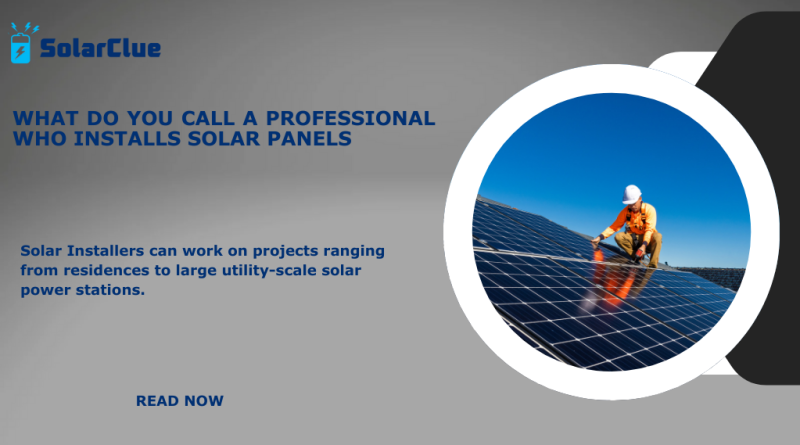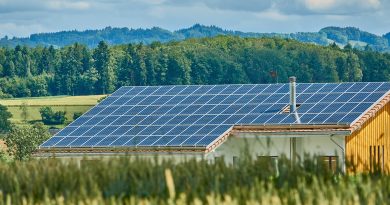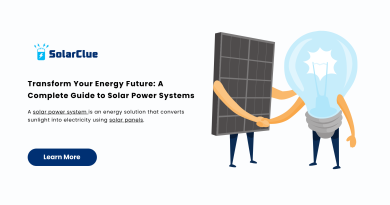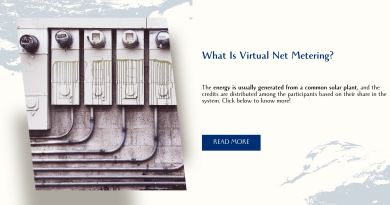What Do You Call A Professional Who Installs Solar Panels
As we march into the future, the drive towards sustainable energy has become increasingly critical. Solar technology, often championed as a major sustainable energy form, has seen a global boom. Residential homes, commercial facilities, and even utility-scale facilities are turning towards this inexhaustible energy resource. However, as the demand grows, so does the need for quality services from professionals who monitor, manage, and importantly, install these high-tech systems. But what do you call a professional who installs solar panels? They are traditionally referred to as Solar Installers or PV Installers, with ‘PV’ standing for Photovoltaic.
Table of Contents
What is a Solar/ PV Installer
A Solar Installer, or PV Installer, is a professional responsible for assembling, installing, and maintaining solar panel systems on rooftops or other structures. Solar Installers can work on projects ranging from residences to large utility-scale solar power stations. While the role involves significant physical labour — such as lifting heavy equipment, climbing ladders, and using power tools — there is also a technical aspect that requires a good understanding of electrical systems and the ability to read blueprints.
Tasks and Responsibilities
Solar Installers have a range of duties. Initially, they assess the installation site for feasibility by conducting a site audit, which includes noting the environmental and safety factors, and evaluating the best possible placement of the solar panels for maximum efficiency.
The actual installation process involves a series of steps. Firstly, they assemble the solar modules or panels along with the support structures. Next, they install the solar modules or panels onto the support structure and ensure they are secure. They then link the solar arrays to the building’s power supply and connect the system to the power storage equipment. Later, they activate and test the solar energy system to ensure proper working.
To maximize the efficiency of the panels, Solar Installers use monitoring systems that indicate how much power the solar panels are generating at any given time. The additional part of their responsibility includes providing customers with instructions for maintaining and monitoring their solar systems.
Skills and Knowledge Required
As this role involves both manual labor and technical understanding, it demands a unique set of skills and knowledge. Some of the necessary abilities include basic knowledge of electrics, familiarity with hand and power tools, ability to read and understand blueprints, safety consciousness, excellent problem-solving skills, and good balance.
In addition to these basic skills, a deeper understanding of the conversion of sunlight into electricity, i.e., the photovoltaic technology, is essential. Solar Installers should also understand electricity, electronics, and how to work with different types of wiring systems.
Education and Training
Solar Installers typically need a high school diploma as a minimum academic requirement. Many professionals learn their trade on the job by aiding experienced installers. However, as the market becomes competitive, many individuals are enhancing their skills and knowledge through vocational training or community colleges that offer courses on solar panel installation.
Certificate programs in solar energy technology are also available for those who wish to specialize in this field. Professional organizations, like the North American Board of Certified Energy Practitioners (NABCEP), offer certification for PV Installers, which can give them an advantage in the job market, as many employers require it.
Conclusion
The adoption of renewable energy like solar power is rapidly increasing. As a result, the need for skilled professionals such as Solar Installers is on the rise. These experts play a pivotal role in making sure that solar panels are installed correctly and work efficiently, thereby contributing to less reliance on fossil fuels and reducing greenhouse gas emissions.
In conclusion, a Solar (PV) Installer is a crucial figure in our transition towards a more sustainable world. Their roles, responsibilities, and the skills and knowledge they bring to their jobs significantly contribute to a better and greener future.




